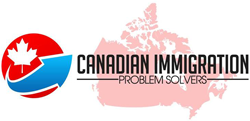Canada Work Permits
Canada welcomes hundreds of thousands of foreign workers each year. There are many ways in which a foreign national can work in Canada, and this is often a pathway for permanent residence.
How many work permits are issued?
In 2017, a total of 78,788 work permits were issued under the Temporary Foreign Worker Program (TFWP), which includes caregivers, agricultural workers and other workers who require a Labour Market Impact Assessment (LMIA).
In addition, 224,033 work permits were issued under the International Mobility Program (IMP), which are exempt from an LMIA for reasons such as reciprocal agreements that promote economic, social and cultural exchange between Canada and other countries.
Transition to Permanent Residence
There are many ways in which having a work permit and Canadian work experience can help you to become a permanent resident of Canada. In 2017, Canada admitted as permanent residents 49,557 individuals who had previously held a work permit under the TFW Program or IMP.
Do I need a Work Permit?
There are many types of work permits, and many ways to categorize them. The simplest way is to categorize work in Canada by one of the following three methods:
- Employment that requires a Work Permit and Labour Market Impact Assessment (LMIA)
- Employment that requires a Work Permit but is exempt from needing a Labour Market Impact Assessment (LMIA)
- Employment that does not require a Work Permit or a Labour Market Impact Assessment (LMIA)
Employment that requires a Work Permit and Labour Market Impact Assessment (LMIA)
In most cases, a Canadian employer wishing to hire a foreign worker must first obtain approval from the government to hire a foreign worker by demonstrating that no Canadians are available to fill the position. This application is known as a Labour Market Impact Assessment (LMIA). If approved, the employer may then offer employment to the foreign worker, who must then apply for a Work Permit before they can start working.
Employment that requires a Work Permit but no LMIA
Some employment requires a work permit but is exempt from the need for an LMIA. There are numerous exemptions available. Sections 204 to 208 of the Immigration and Refugee Protection Regulations provide the regulatory authority to issue a work permit to a worker who does not require a Labour Market Impact Assessment (LMIA).
Examples of categories that require a work permit but are exempt from the LMIA requirement includes the following:
Spouses of Foreign Workers and Students
Bridging Open Work Permits
Post Graduate Work Permits
International Agreements (NAFTA, GATS)
Provincial Nominees
Work Related to a Research Program
Religious Work
Spouses of Canadians who have applied for Permanent Residence in Canada
Entrepreneurs/Self-Employed Candidates
Intra-Company Transferees
International Exchange Programs
Employment that does not require a Work Permit or LMIA
Under specified conditions, certain occupations do not require a work permit or LMIA. These include the following:
Athlete or coach
Aviation accident or incident investigator
Business visitor
Civil aviation inspector
Clergy
Convention organizer
Crew member
Emergency service provider
Examiner and evaluator
Expert witness or investigator
Family member of foreign representative
Foreign government officer or representative
Health care student
Judge, referee or similar official
Military personnel
News reporter or film and media crew
Producer or staff member working on advertisements
Performing artist
Public speaker
Short-term highly-skilled worker
Short-term researcher
Student working off-campus
Student working on-campus
Open Work Permits vs Closed Work Permits
A work permit will either be ‘open’ or ‘closed’. An Open Work Permit means that it allows the foreign worker to work in any job and for any employer with few if any restrictions. A Closed Work Permit means that a foreign worker is restricted to either a specific employer, a specific job, or both.
Open Work Permits never require an LMIA. Closed Work Permits may require an LMIA.
Examples of Open Work Permits
Bridging Open Work Permits [for applicants whose work permit is about to expire and who have applied for permanent residence under certain categories] .
Spouses and Common-law Partners of Work Permit Holders.
Spouses and Common-law Partners of Study Permit Holders.
Spouses and Common-law Partners being sponsored for permanent residence from inside of Canada.
International Students in Canada who are graduating from their program may apply for a Post-Graduate Work Permit if certain conditions are met.
Working Holiday Work Permits.
Need Help?
If you would like more information on your options for working in Canada or to discuss your particular case in more detail.

